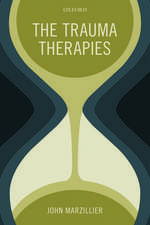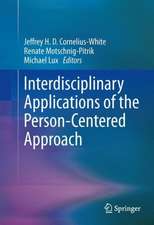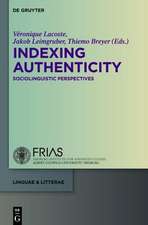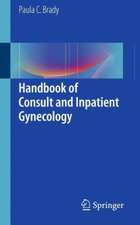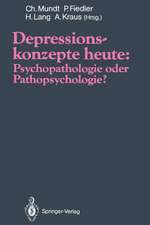Karl Jaspers’ Philosophy and Psychopathology
Editat de Thomas Fuchs, Thiemo Breyer, Christoph Mundten Limba Engleză Hardback – 29 oct 2013
| Toate formatele și edițiile | Preț | Express |
|---|---|---|
| Paperback (1) | 1103.31 lei 6-8 săpt. | |
| Springer – 23 aug 2016 | 1103.31 lei 6-8 săpt. | |
| Hardback (1) | 1011.43 lei 3-5 săpt. | +20.24 lei 4-10 zile |
| Springer – 29 oct 2013 | 1011.43 lei 3-5 săpt. | +20.24 lei 4-10 zile |
Preț: 1011.43 lei
Preț vechi: 1064.67 lei
-5% Nou
Puncte Express: 1517
Preț estimativ în valută:
193.56€ • 201.33$ • 159.80£
193.56€ • 201.33$ • 159.80£
Carte disponibilă
Livrare economică 25 martie-08 aprilie
Livrare express 08-14 martie pentru 30.23 lei
Preluare comenzi: 021 569.72.76
Specificații
ISBN-13: 9781461488774
ISBN-10: 146148877X
Pagini: 200
Ilustrații: X, 188 p. 4 illus.
Dimensiuni: 155 x 235 x 17 mm
Greutate: 0.42 kg
Ediția:2014
Editura: Springer
Colecția Springer
Locul publicării:New York, NY, United States
ISBN-10: 146148877X
Pagini: 200
Ilustrații: X, 188 p. 4 illus.
Dimensiuni: 155 x 235 x 17 mm
Greutate: 0.42 kg
Ediția:2014
Editura: Springer
Colecția Springer
Locul publicării:New York, NY, United States
Public țintă
ResearchCuprins
Part I: History and Methodology.- Psychopathology and the Modern Age. Karl Jaspers reads Hölderlin.- Hermeneutical and dialectical thinking in psychiatry and the contribution of Karl Jaspers.- Phenomenological intuitionism and its psychiatric impact.- The reception of Jaspers’ General Psychopathology outside of Europe.- Brain mythologies: Jaspers’ critique of reductionism from a current perspective.- Karl Jaspers’ criticism of anthropological and phenomenological psychiatry.- Perspectival knowing: Karl Jaspers and Ronald N. Giere.- Part II: Psychopathology and Psychotherapy.-Karl Jaspers on primary delusional experiences of schizophrenics: his concept of delusion compared to that of the DSM.- Delusion and double book-keeping.- Jaspers on feelings and affective states.- Jaspers’ concept of “limit situation”: extensions and therapeutic applications.- Psychopathology and psychotherapy in Jaspers’ work and today’s perspectives on psychotherapy in psychiatry.
Notă biografică
PROF. DR. DR. THOMAS FUCHS is the Karl Jaspers Professor of Philosophy and Psychiatry at the University of Heidelberg. He is the head of the research unit “Phenomenological Psychopathol-ogy and Psychotherapy”, coordinator of the EU Marie Curie Research Training Network TESIS (Towards an Embodied Theory of Intersubjectivity) and the Volkswagen Foundation Research Project “The Brain as a Mediating Organ”, as well as co-director of the Interdisciplinary Forum for Biomedicine and Cultural Studies (IFBK). His publications include: Mechanization of the Heart (Rochester University Press, 2001), The Embodied Self (Schattauer, 2010) and Ecology of the Brain (Oxford University Press, under contract).
DR. THIEMO BREYER is a postdoctoral researcher in philosophy and cognitive science at the Clinic for General Psychiatry, University of Heidelberg, lecturer at the University of Freiburg and research associate at the Husserl Archive Freiburg. He is the head of the research unit “Anthro-pology of Intersubjectivity”, funded by the Baden-Württemberg Foundation. His publications in-clude: On the Topology of Cultural Memory (Königshausen & Neumann, 2007), Attentionalität und Intentionalität (Fink, 2011) and Synchrony and Embodied Interaction (Springer, under con-tract).
PROF. DR. EM. CHRISTOPH MUNDT is professor emeritus of psychiatry at the University of Heidel-berg, where he held a chair in psychiatry and was clinical director of the Department of General Psychiatry and the polyclinic. His publications include: Interpersonal Factors in the Origin and Course of Affective Disorders (Gaskell, 1996), Psychotherapie in der Psychiatrie (Springer, 1997) and Konzeptuelle Weiterentwicklungen im Umkreis der strukturdynamischen Psychopa-thologie (Thieme, 2004).
DR. THIEMO BREYER is a postdoctoral researcher in philosophy and cognitive science at the Clinic for General Psychiatry, University of Heidelberg, lecturer at the University of Freiburg and research associate at the Husserl Archive Freiburg. He is the head of the research unit “Anthro-pology of Intersubjectivity”, funded by the Baden-Württemberg Foundation. His publications in-clude: On the Topology of Cultural Memory (Königshausen & Neumann, 2007), Attentionalität und Intentionalität (Fink, 2011) and Synchrony and Embodied Interaction (Springer, under con-tract).
PROF. DR. EM. CHRISTOPH MUNDT is professor emeritus of psychiatry at the University of Heidel-berg, where he held a chair in psychiatry and was clinical director of the Department of General Psychiatry and the polyclinic. His publications include: Interpersonal Factors in the Origin and Course of Affective Disorders (Gaskell, 1996), Psychotherapie in der Psychiatrie (Springer, 1997) and Konzeptuelle Weiterentwicklungen im Umkreis der strukturdynamischen Psychopa-thologie (Thieme, 2004).
Textul de pe ultima copertă
How much of mental illness is in the brain? The mind? Why does it matter?
A century after his groundbreaking General Psychopathology, the work of Karl Jaspers remains relevant and timely. Then, as now, advances in neuroscience are revolutionizing psychology, resulting in a precarious balance between brain and mind.
The papers in Karl Jaspers’ Philosophy and Psychopathology revisit Jaspers' ideas and methods in light of contemporary thinking and offer insights on how these may inform approaches to theoretical discourse and clinical practice. Working to bridge psychiatry and medicine, organizing a classification system for mental disorders, and rejecting dogmatic formulas in favor of respecting client experience, he emerges as a translator as well as a transmitter of clinical ideas. Through these chapters, he continues to remind his peers to never lose sight of the patient as human, and the brain--so often in danger of being reduced to the sum of its structures--as the seat of our humanity. Among the featured topics:
A century after his groundbreaking General Psychopathology, the work of Karl Jaspers remains relevant and timely. Then, as now, advances in neuroscience are revolutionizing psychology, resulting in a precarious balance between brain and mind.
The papers in Karl Jaspers’ Philosophy and Psychopathology revisit Jaspers' ideas and methods in light of contemporary thinking and offer insights on how these may inform approaches to theoretical discourse and clinical practice. Working to bridge psychiatry and medicine, organizing a classification system for mental disorders, and rejecting dogmatic formulas in favor of respecting client experience, he emerges as a translator as well as a transmitter of clinical ideas. Through these chapters, he continues to remind his peers to never lose sight of the patient as human, and the brain--so often in danger of being reduced to the sum of its structures--as the seat of our humanity. Among the featured topics:
- Hermeneutical and dialectical thinking in psychiatry and the contribution of Jaspers.
- Brain mythologies: Jaspers’ critique of reductionism from a current perspective.
- Jaspers’ criticism of anthropological and phenomenological psychiatry.
- Jaspers' concept of delusion compared to that of the DSM.
- Jaspers’ concept of “limit situation”: extensions and therapeutic applications.
- Psychopathology and psychotherapy in Jaspers’ work and today’s perspectives on psychotherapy in psychiatry.
Caracteristici
Historically reconstructs and examines Jaspers' breakthrough work General Psychopathology Systematically investigates the methodological novelties of Jaspers' approach Offers new perspectives for the analysis of consciousness and its disorders Includes supplementary material: sn.pub/extras

